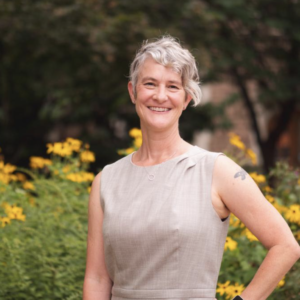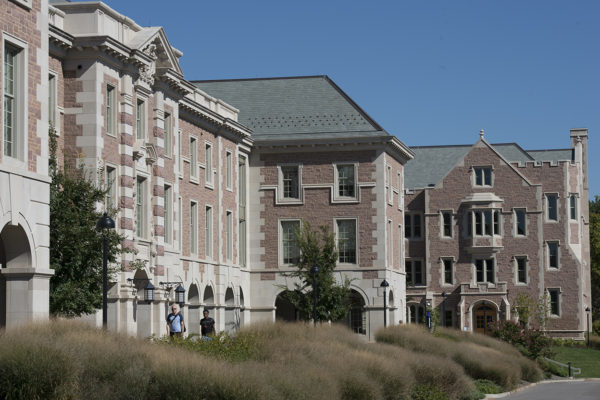Elizabeth Haswell earned her PhD in Biochemistry at the University of California, San Francisco in 2000, working on chromatin remodeling in yeast. She then switched to plant systems for her postdoctoral work as a Life Sciences Research Fellow at Caltech, where she fell in love with plant mechanobiology. In 2007, she joined the Biology faculty at Washington University in St. Louis, where she is now a professor and Howard Hughes Medical Institute-Simons Faculty Scholar. Her research group aims to identify the molecular and cellular mechanisms by which plants perceive force, with a particular focus on mechanosensitive ion channels and she teaches a course on Plant Biology and Genetic Engineering. Liz is a Senior Editor for The Plant Cell and a Deputy Editor at Science Advances. She serves on the Multinational Arabidopsis Steering Committee and is an AAAS Council Delegate. She is an advocate for science communication and for an academic culture that values sustainability, diversity, and authenticity. Sheis also a co-host of The Taproot, a Plantae podcast.

Elizabeth Haswell
Professor, Department of Biology
Contact Information
- Phone: 935-9223
- Email: ehaswell@wustl.edu
- Website: Website
Media Contact
In the media
Barbara Pickard, Plant Mechanosensory Researcher, Dies
Elizabeth Haswell, professor of biology
A holiday survival guide for academics
Elizabeth Haswell, professor of biology
How to make your podcast stand out in a crowded market
Elizabeth Haswell, professor of biology
Stories
An ion channel senses cell swelling and helps cells to choose a response
New research from Washington University in St. Louis offers clues about how mechanosensitive ion channels in the plant’s cells respond to swelling by inducing cell death — potentially to protect the rest of the plant.
NSF announces new Science and Technology Center
The National Science Foundation (NSF) has added a newly formed collaboration between Washington University in St. Louis and the University of Pennsylvania to its list of Science and Technology Centers (STC). The new center, one of just 12 nationally, will be supported by a $23.6 million NSF grant to study the mechanics of plant and animal cells. This deeper dive into how single cells function could transform both medicine and plant science.

